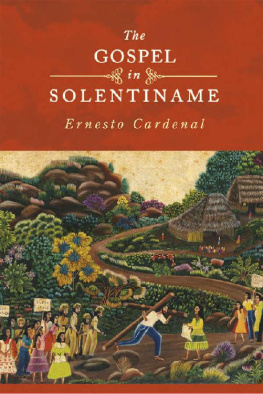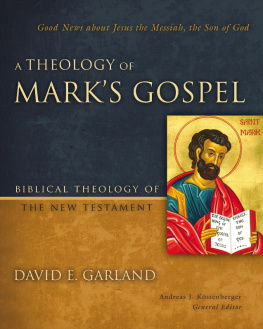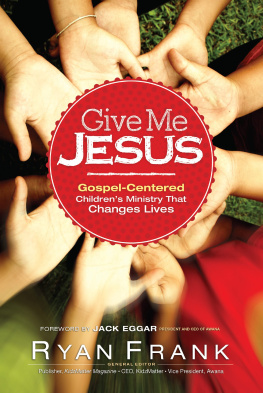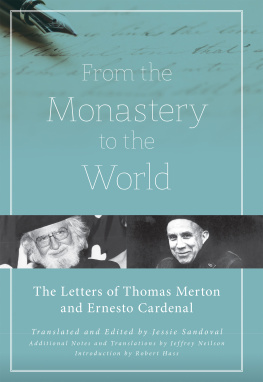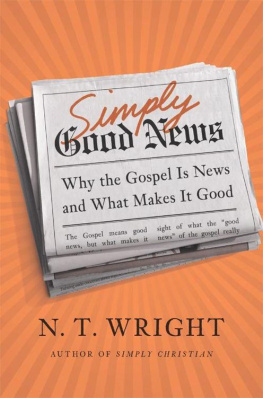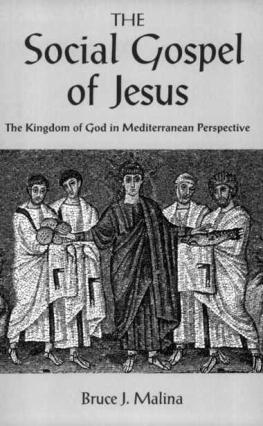The
GOSPEL

SOLENTINAME
Ernesto Cardenal
Translated by Donald D. Walsh

Founded in 1970, Orbis Books endeavors to publish works that enlighten the mind, nourish the spirit, and challenge the conscience. The publishing arm of the Maryknoll Fathers and Brothers, Orbis seeks to explore the global dimensions of the Christian faith and mission, to invite dialogue with diverse cultures and religious traditions, and to serve the cause of reconciliation and peace. The books published reflect the views of their authors and do not represent the official position of the Maryknoll Society. To learn more about Maryknoll and Orbis Books, please visit our website at www.maryknollsociety.org.
English translation copyright 1976, 1978, 1979, 1982, 2010 by Orbis Books.
Originally published as El Evangelio en Solentiname, 2. vols., 1975, 1977 by Ediciones Sgueme, Salamanca, Spain.
The Gospel in Solentiname was originally published in English by Orbis Books in 4 volumes appearing in 1976, 1978, 1979, and 1982. This revised one-volume edition follows the 2nd edition published by anam Ediciones, 2007, Managua, Nicaragua.
Published by Orbis Books, Box 302, Maryknoll, NY 10545-0302.
All rights reserved.
No part of this publication may be reproduced or transmitted in any form or by any means, electronic or mechanical, including photocopying, recording, or any information storage or retrieval system, without prior permission in writing from the publisher.
Queries regarding rights and permissions should be addressed to: Orbis Books, P.O. Box 302, Maryknoll, NY 10545-0302.
Manufactured in the United States of America
Library of Congress Cataloging-in-Publication Data
Cardenal, Ernesto.
[Evangelio en Solentiname. English]
The Gospel in Solentiname / Ernesto Cardenal ; translated by Donald D. Walsh.Rev. one-vol. ed.
p. cm.
Includes index.
ISBN 978-1-57075-902-4 (pbk.)
1. Bible. N.T. JohnCriticism, interpretation, etc.Miscellanea. I. Title. BS2555.52.C365 2010
226.5'06dc22
2010018701
Contents
Introduction
Every Sunday in Solentiname, a remote archipelago in Lake Nicaragua inhabited by campesinos (peasants), instead of a sermon we held a dialogue on the gospel reading. The campesinos discussions were often more profound than those of many theologians, but they reflected the simplicity of the gospel readings themselves. That is not surprising. The gospel, or good news (good news to the poor), was written for them, by people like them.
Some of my friends urged me not to let those comments be lost, but to collect and publish them in a book. This is that book. I began by collecting them in my memory, for as long as I could. Later, out of a growing sense of practicality, we used three tape recorders so that none of the comments would be lost.
Many of the discussions took place in the church, at the Sunday mass. Others, in a thatched hut we had built across from the church for meetings and shared meals after the mass. Sometimes the mass and gospel dialogues were held outdoors on other islands, or in a small coastal village across the way, which we reached by way of a beautiful river surrounded by exuberant tropical foliage.
First we passed out copies of the gospel to those who could read. Some people couldn't read, especially the elderly and those who lived farthest away from the school. One of the best readers (usually a boy or girl) would read aloud the whole passage that we were going to discuss. Then we talked about it, verse by verse.
We used the Protestant translation, Dios llega al hombre from the American Bible Society, which is the best translation of the gospels that I know. The translator is anonymous, but it must have been done by a poet. It is written in the simple language of the Latin American campesinos, but with great faithfulness to scripture.
I organized the commentary for publication, not chronologically but in the order of the gospel readings. Often, however, the discussion followed the same order as the readings.
Naturally I have elaborated on the dialogues from time to time. These are not transcriptions from an anthropological text, but a work of literature. I omitted some of the less interesting or repetitious comments, polished some phrasings, and added things that would enrich the gospel texts; but most of it is just what the campesinos said, in their own words, and that is the value of the book. I consider it the best of my books, precisely because I am not its author.
Later I wished that many good dialogues had not disappeared with the wind before we started collecting them. And that we had not lost some through recording failures. But those dialogues are lost only to the book, not to those who took partwho have kept them in some ways, even when they no longer remember them.
There are 38 islands in the archipelago of Solentiname; some are very small, and only the largest of them are inhabited. The population is around 1,000 people, in about 90 families. Most of the houses are made of straw, scattered widely along the shore of each island. Our small community or commune, Nuestra Seora de Solentiname, was at one end of the largest island. The Colombian poet William Agudelo and his wife Teresita were members, along with their two small children, Irene and Juan; also some young men born on the island: Alejandro, Elvis and Laureano. There was very little communication beyond the island, so our contemplation was seldom disturbed in this secluded spot, away from the tourist and trade routes.
Not everyone who lived on these islands came to mass. Some didn't come for lack of a boat. Others, because we didn't have devotions to the saints as they were accustomed to doing. Others were influenced by anticommunist propaganda, and perhaps also by fear.
Not everyone who came participated equally in the discussion. Some spoke up more often than others. Marcelino was a mystic. Olivia was more theological. Rebeca, Marcelino's wife, always talked about love. Laureano saw everything in terms of the revolution. Elvis was always thinking about the perfect society of the future. Felipe, another youth, was constantly aware of the proletarian struggle. His father, old Tomas Pea, couldn't read but spoke out of a deep wisdom. Alejandro, Olivia's son, was a youth leader; he had guidance to offer everyone, especially other young people. Pancho was a conservative, but later took a different position. Julio Mairena was a staunch defender of equality. His brother Oscar always talked about unity. They, and all the others who often spoke up and had important things to say, and those who spoke little but also said important things, along with William and Teresita and our other companions who took part in the dialogues, are the authors of this book.
More importantly, the true author is the Spirit who inspired these commentsthe campesinos of Solentiname knew very well that it was the Spirit who made them speakthe same Spirit who inspired the gospels. The Holy Spirit, the spirit of God infused throughout the community: Oscar called it the spirit of unity, Alejandro called it the spirit of service to others, Elvis called it the spirit of the future society, Felipe called it the spirit of the proletarian struggle, Julio called it the spirit of equality and community sharing, Laureano called it the spirit of the revolution, and Rebeca called it the spirit of love.

